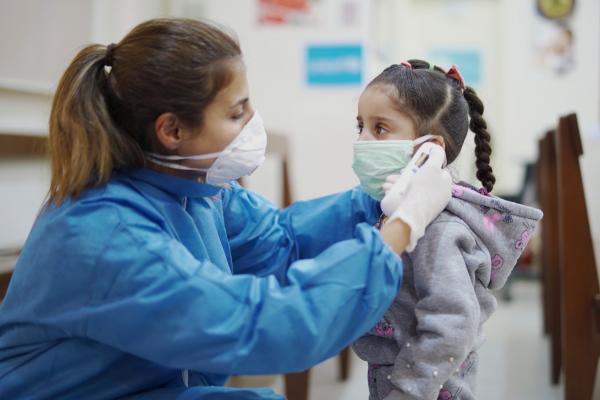The Covid-19 pandemic and measures enacted by the government to place the country on lockdown and close schools and nurseries has severely impacted child care arrangements for many separated parents and their children. There are concerns about parents’ abilities to meet obligations from previously agreed court orders and how they may not be able to see their children for a sustained period of time due to isolation or travel restrictions.
Ashlee Robinson, Associate from DAS Law explains what you need to know…
What are the latest rules regarding parents access to children during the crisis?
Government guidance, alongside the Rules on Staying at Home and Away from Others, issued on 23 March, outlined that: “Where parents do not live in the same household, children under 18 can be moved between their parents’ homes.”
This does not mean that children must be moved between their parents’ homes.
Can I change contact and visitation arrangements from those set out in the Court Order?
Parents should consider the best interests of their child and if necessary, they are able to temporarily change the arrangements within a Child Arrangements Order (CAO). It is advisable that each parent keeps a record of the agreement to alter such an order.
Parents are encouraged to maintain a child’s routine and the spirit of a CAO by implementing alternative contact methods, such as video links.
What if we don’t agree?
A parent may exercise their parental responsibility and vary a CAO if they believe this is in a child’s best interests. The parent will need to show reasonableness, that they have acted in accordance with government guidance, and that they have engaged in alternative contact methods.
A parent may challenge a decision to vary a CAO without their agreement, though this should be a last resort. The Family Court is likely to consider; whether the parent has acted reasonably, sensibly, in line with government guidance, and any evidence relating to the child or family.
Parents are advised to consider the use of a mediation service before making any applications to the Family Court during this crisis.
What are my rights as a parent during the crisis?
Parents will still have parental responsibility over their child and will need to consider the best interest of their child during the crisis.
What if I or my co-parent is experiencing symptoms?
The government guidance alongside the Rules on Staying at Home and Away from Others outlines that a symptomatic individual should remain in isolation for seven days from the start of their symptoms and that those in the same household should self-isolate for a 14 day period. Parents need to consider the guidance and the health of the whole household alongside child arrangements – they also need to ensure they are acting sensibly and safely. It may be necessary for a child to self-isolate with one parents or not return to a symptomatic household.
A parent may challenge a decision to vary a CAO without their agreement, though this should be a last resort. The Family Court is likely to consider whether the parent has acted reasonably, sensibly, in line with government guidance, and any evidence relating to the child or family.
Parents are advised to consider the use of a mediation service before making any applications to the Family Court during this crisis.
What if I or my co-parent is a ‘key worker’?
If a parent is a ‘Key Worker’ and cannot keep their child at home during this crisis, the child will be prioritised for educational provision.
Parents are encouraged to communicate with each other and consider what is in the child’s best interest. With agreement, parents may temporarily alter arrangements so that the child is cared for by the parent who is not a ‘key worker’. Parents are advised to keep a record of such agreement.
What if we cannot stick to the childcare arrangement due to illness?
Parents are encouraged to act sensibly and safely. Where possible, communication between parents is vital. Parents need to consider the child’s best interests and if necessary agree to temporarily vary arrangements, keeping a record of such agreement, and ensuring contact is maintained through alternative methods.
Disclaimer: This information is for general guidance regarding rights and responsibilities and is not formal legal advice as no lawyer-client relationship has been created.

| [donate]
| Help keep news FREE for our readersSupporting your local community newspaper/online news outlet is crucial now more than ever. If you believe in independent journalism,then consider making a valuable contribution by making a one-time or monthly donation. We operate in rural areas where providing unbiased news can be challenging. |



















